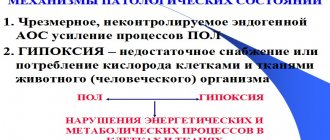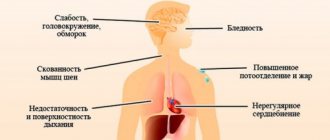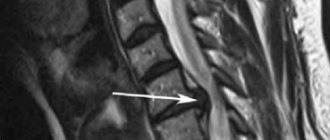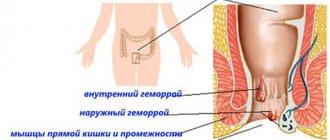Even with a varied diet, a person, unfortunately, does not receive the norm of vitamins and microelements. This is especially felt in regions with a sharp and cold climate and food seasonality. For example, in our region, only 3 months a year we can eat clean, fresh vegetables and berries. The sun also doesn’t spoil us all year round, like in the south, for example. Therefore, a lack of vitamin D, poor absorption of calcium, and a lack of omega-3 and 6 are the costs of living in the northern and northeastern parts of Russia, for example, in the Irkutsk region. Taking vitamins becomes a necessity.
Today we’ll talk about magnesium - the main building block for a strong nervous system, the deficiency of which is becoming very common. Which drug is better, what is their feature, how to take magnesium correctly and when a positive effect is achieved.
Which magnesium supplement should you choose?
October 25, 2021
8617
4.8
4
Content
- Why does the body need magnesium?
- What does magnesium do in the body?
- Symptoms of magnesium deficiency
- Top 5 magnesium preparations
- Magne Express
- Magne B6
- Magnerot
- Complivit Magnesium
- Panangin
- What foods are high in magnesium?
Magnesium is found in all tissues of the human body, because this essential element ensures the proper functioning of cells. Today we will tell you in what processes magnesium is involved, what are the symptoms of its deficiency and how to choose a good magnesium supplement.
What does magnesium do in the body?
- Magnesium is necessary to provide the cell with energy.
- Without magnesium, B vitamins and vitamin C cannot be synthesized (that is, without magnesium, these vitamins do not enter the body).
- Magnesium interacts with calcium, strengthening bones, magnesium is necessary for muscle tone, it eliminates cramps and joint pain.
- Magnesium makes blood vessels strong, reduces blood pressure and regulates heart contractions (necessary for normal rhythm).
- Magnesium reacts with insulin, helping it penetrate cells, thereby regulating glucose levels.
- Magnesium helps skin heal after cuts and burns.
This is not a complete list of processes involving magnesium, but it is sufficient to understand how necessary the microelement is for our body.
Magnesium helps:
- in the prevention of headaches;
- cope with insomnia, stress and fatigue;
- relax the muscles;
- cope with depression faster;
- work of the musculoskeletal system;
- keep bones and teeth healthy. Read also How to strengthen the immune system: top 10 vitamins for schoolchildren The best vitamins for schoolchildren. Increases physical and mental endurance, strengthens the immune system, nervous system, bones and teeth.
Symptoms of magnesium deficiency
Here are at least 12 signs that you have a magnesium deficiency:
- Weakness. Since magnesium is involved in energy production, its deficiency immediately affects physical condition.
- Muscle twitching or spasms. Since magnesium helps muscles relax, its deficiency provokes involuntary contraction. If there were no magnesium in the body, our muscles would be constantly tense.
- Frequent headaches. Due to a lack of magnesium, serotonin levels decrease, hence vasospasm and a negative effect on the functioning of neurotransmitters. All this combined causes a headache.
- Insomnia. A lack of magnesium can cause sleep problems, especially if you are under stress. Stress hormones increase blood pressure and heart contractions.
- Irregular heartbeat. Due to a lack of magnesium, problems with heart rhythm are possible, and this is a fairly common occurrence. That is why doctors prescribe magnesium supplements for arrhythmia.
- Noise intolerance. A lack of magnesium affects the functioning of the nervous system, so sometimes a person reacts poorly to loud noise.
- Convulsions. Again, if there is little magnesium in the body, the nervous system suffers, this can even cause convulsions. You need to see a doctor urgently.
- Bones suffer from a lack of minerals. Magnesium is involved in the formation of bone tissue. If there is a lack of magnesium, calcium is poorly absorbed.
- Constipation. Without sufficient magnesium levels, intestinal function is disrupted. By the way, many laxatives contain magnesium.
- High blood pressure. Magnesium helps blood circulate properly, so its lack provokes surges in blood pressure.
- Diabetes mellitus type 2. Magnesium is involved in lowering blood sugar. If a person does not have enough magnesium in their diet, they may develop type 2 diabetes.
- Mood swings. If you feel a “swing” in your mood, be sure to donate blood to check your magnesium level.
In addition, with a lack of magnesium, loss of appetite and nausea, heartburn and acid reflux, brittle nails and skin problems are observed.
Remember that the symptoms listed may be a sign of other problems, so consulting a doctor is necessary. Do not self-medicate.
Symptoms of magnesium deficiency
Photos from open sources
Causes and manifestations of magnesium deficiency
A severe magnesium deficiency can be caused by one or several reasons:
- Reduced magnesium intake or increased magnesium costs. This is provoked by poorly balanced diets, chronic alcohol abuse or certain physiological conditions (growth period or age-related decline, stressful situations, childbearing and breastfeeding, sports).
- Redistribution of magnesium in the body. This can occur against the background of inflammatory or necrotic processes, with a reduced level of insulin in the blood. This can also be caused by heart surgery, chronic heart failure, and diabetes mellitus.
- Poor absorption of magnesium in the intestine or its rapid excretion through the gastrointestinal tract. The following pathological conditions lead to this: celiac disease, Crohn's disease, ulcerative colitis, Whipple's disease, removal of part of the intestine, frequent use of laxatives, malignant tumors.
- Impaired renal tubular absorption of magnesium. This is accompanied by acquired kidney pathologies (damage to nephron tubules and impairment of their function, kidney transplantation, syndrome of impairment of all renal functions).
- Endocrine diseases. In case of hyperfunction of the thyroid gland, Burnett's syndrome, and diabetes mellitus, magnesium deficiency is determined.
- Use of medications. First of all, magnesium metabolism disorders are caused by diuretic (diuretic) drugs.
- Magnesium deficiency is primarily indicated by disorders of the neuromuscular system and psyche. Muscle twitching, convulsions, increased reflexes, tremors, or muscle weakness are noted. Over time, the following may appear: laryngospasm, bronchospasm, vomiting, increased uterine tone. Possible addition of asthenia, mental disorders, manifested by anxiety, aggressiveness, fears.
Magne Express
This drug contains magnesium citrate and vitamin B6. This combination is very effective - these two substances enhance each other’s effects. "Magne Express" is prescribed for a slight lack of magnesium, as well as for the prevention of its deficiency. You can buy “Magnesium Express” in the form of a sachet (bags of granules for resorption). The drug is taken after meals (one sachet twice a day), there is no need to wash it down with water. The course of treatment is one month. The granules taste sweet and sour, with the aroma of tropical fruits. This magnesium citrate has high bioavailability, but is recommended to be taken as a dietary supplement. If there is a serious lack of magnesium, it is better to choose another drug (magnesium lactate), which will be prescribed by your doctor. Magne Express should not be taken during pregnancy, breastfeeding, kidney failure or while taking medications for Parkinson's disease. One of the disadvantages of this magnesium supplement is its high cost.
Magne Express
Pontroy Vitarmonil Industry, France
Magne Express is a dietary supplement that helps normalize the functioning of the nervous system and increases stress resistance.
from 150
4.5 2 reviews
132
- Like
- Write a review
Magnistad and Magnesol
Among the list of inexpensive and effective magnesium preparations, Magnistad should be mentioned (360 rubles/50 tablets). Contains Mg in the form of lactate, as well as pyridoxine. Therapeutic doses of substances can eliminate the deficiency that occurs due to poor nutrition, alcoholism, and dehydration.
Pyridoxine significantly improves the absorption of Mg in the intestine.
This form of the element is excreted by the kidneys, so it is contraindicated for people with chronic renal failure. Taking it on an empty stomach most often causes diarrhea, so take the drug with meals. Children over 6 years old and adults are recommended 6-8 tablets/day.
Another high-quality medicine with the element is Magnesol. It becomes a source of Mg, even with its acute deficiency. The medicine contains a citrate form of the substance, and the composition is enriched with riboflavin. The latter distinguishes Magnesol from most drugs that include pyridoxine. The price is 860 rubles/30 sachets, but the high cost is justified by the excellent quality. Magnesol is given to children from 11 years of age; a person needs 1-2 sachets per day, depending on the severity of the condition.
Magne B6
You can buy Magne B6 in two forms: tablets and oral solution. Let's consider the second option - Magne B6 in ampoules (but they are not injected, but drunk). The magnesium ampoule needs to be shaken, broken and poured into a cup of water. This magnesium is presented in the form of lactate. You need to take three to four of these ampoules a day. This drug is suitable not only for prevention, but also for quickly replenishing magnesium deficiency in the body. Magne B6 ampoules are a brownish liquid with a subtle caramel odor. This magnesium supplement is prescribed for gastrointestinal spasms, rapid heartbeat, pain and tingling in the muscles, irritability and mood swings. If a blood test reveals a lack of magnesium, Magne B6 in ampoules will quickly solve the problem. It is this form of the drug that is prescribed for laboratory-confirmed lack of magnesium in the blood. Magne B6 is often prescribed during pregnancy when there is malnutrition. Adults take up to four ampoules of magnesium per day (the dosage for children is calculated by the pediatrician, based on the baby’s weight). Once magnesium has returned to normal, the drug is well tolerated, acts quickly, and can be prescribed to small children. The relative disadvantages of Magne B6 are the price and the fact that the product is in ampoules. "Magne B6" is contraindicated in case of renal failure and while taking certain drugs for the treatment of parkinsonism.
Magne-B6
Sanofi-Winthrop Industries, Hungary
Magne B6 is based on a vital element present in all tissues and organs - magnesium.
This component takes an active part in all metabolic processes, including the transmission of impulses to nerve cells. The body primarily obtains magnesium from food. Its deficiency can occur in the event of an incorrect diet, for example, during diets, if the need for magnesium has sharply increased. The latter can happen during mental and physical stress, pregnancy, stress, and the use of diuretics. from 405
4.0 1 review
1719
- Like
- Write a review
Daily requirement
The average daily requirement for magnesium differs depending on age and gender:
| Population group | Daily value, mg | Upper permissible limit, mg |
| Infants (0-6 months) | 30 | — |
| 7-12 months | 75 | — |
| Children (1-3 years) | 80 | 145 |
| 4-8 years | 130 | 240 |
| 9-13 years | 240 | 590 |
| Girls (14-18 years old) | 360 | 710 |
| Boys (14-18 years old) | 410 | 760 |
| Men (19-30 years old) | 400 | 750 |
| Women (19-30 years old) | 310 | 660 |
| Men over 30 years old | 420 | 770 |
| Women over 30 years old | 320 | 670 |
| Pregnant and nursing | 450 | 750 |
Magnesium is not produced by the human body, but must be supplied to it through food. But it is quite difficult to cover the daily dose of this macronutrient through food alone. Taking this into account, one cannot do without the additional use of magnesium preparations. In this review, we have collected the best of them containing various salts of this macronutrient.
Magnerot
Magnerot is a magnesium orotate that is usually prescribed to patients with cardiac problems, although the drug can be taken for other symptoms of magnesium deficiency. “Magnerot” is indicated for people who have had a heart attack, with coronary heart disease, heart failure, arrhythmias, muscle pain, atherosclerosis, and lipid metabolism disorders. Magnerot is not cheap and has the same contraindications as previous drugs. In addition, Magnerot should not be taken if you have cirrhosis of the liver or urolithiasis. You need to take the drug 6 tablets per day (for a week). Then - one tablet three times a day.
Magnerot
Woerwag Pharma GmbH & Co. KG, Germany
Magnerot is a magnesium preparation containing magnesium orotate dihydrate.
Magnesium is a macroelement that takes part in energy, protein, lipid and carbohydrate metabolism, as well as the metabolism of nucleic acids. Magnesium inhibits neuromuscular transmission by regulating neuromuscular excitation. Magnesium is a natural calcium antagonist, takes part in the regulation of myocardial contractile function, and is necessary to maintain normal cardiomyocyte function. from 218
4.8 10 reviews
1566
- Like
- Write a review
Complivit Magnesium
This drug is a real vitamin-mineral complex, which, in addition to magnesium, contains B vitamins, vitamins A and E, ascorbic acid, calcium, copper, zinc. You need to take “Complivit Magnesium” one tablet daily. The cost of this magnesium preparation is low, and among the contraindications is only individual sensitivity to its components. A significant disadvantage is that Complivit Magnesium is not a medicine, but a dietary supplement, so it can only be prescribed to prevent magnesium deficiency.
Complivit Magnesium
JSC Pharmstandard-UfaVITA, Russia
A combined preparation containing a complex of vitamins and minerals, which are important factors in metabolic processes.
Used for: Prevention and replenishment of vitamin and mineral deficiencies. Increased physical and mental stress. The period of recovery after long-term and/or severe diseases, including infectious ones. In complex treatment when prescribing antibiotic therapy. from 188
5.0 1 review
566
- Like
- Write a review
Read also: Top 5 drugs for insomnia that are sold without a prescription The best over-the-counter drugs for the treatment of insomnia
Panangin
In addition to magnesium, this drug also contains potassium, so Panangin is usually prescribed for heart problems, in particular for rhythm disturbances. This remedy is indicated for elderly people with arterial hypertension. The fact is that while taking blood pressure medications with a diuretic effect, potassium is “washed out” of the body. The medicine should be taken only on the recommendation of a doctor. The maximum daily dose of Panangin is three tablets three times a day, and the course of treatment is a month. In addition to tablets, Panangin is also available in the form of injections for treatment in a hospital. This magnesium and potassium supplement is well tolerated and is quite affordable. Contraindications include renal failure, elevated levels of magnesium and potassium in the blood, as well as severe atrioventricular block. Pregnant women, especially in the first trimester, need to take Panangin with caution to prevent excess potassium.
Panangin
Gedeon Richter, Hungary
As part of complex therapy for heart failure, acute myocardial infarction, cardiac arrhythmias (mainly ventricular arrhythmias, as well as arrhythmias caused by an overdose of cardiac glycosides);
- to improve the tolerability of cardiac glycosides; — replenishment of potassium and magnesium deficiency when their content in the diet is reduced (for tablets). from 115
5.0 1 review
944
- Like
- Write a review
Magnesium Rich Foods
Photos from open sources
Discussion, answers to questions. Kuznetsova I.V.
Vladimir Trofimovich Ivashkin , academician of the Russian Academy of Medical Sciences, Doctor of Medical Sciences:
– Irina Vsevolodovna, hello. Thank you very much for your very interesting lecture. I have a few questions because your lecture evokes so many associations. Please tell me you are talking about patients with dysmenorrhea. Are these patients with long, heavy periods or not necessarily?
Irina Vsevolodovna Kuznetsova , professor, doctor of medical sciences:
- Thank you very much. We have a mixed audience, so I'll just clarify. The term dysmenorrhea is currently interpreted in gynecology as painful menstruation; this is pathological pain that lasts more than 24 hours in the first days of menstruation. It may, of course, be accompanied by more abundant bleeding, but this is not necessary; it is designated by another term - menorrhagia. But dysmenorrhea itself in its pure form is painful menstruation. It can be primary, that is, it arises precisely as a result of a violation of prostaglandin metabolism, usually in young women, or it can be secondary as a result of endometriosis, as a result of inflammatory processes of the pelvic organs, and so on.
Ivashkin V.T.:
- One more question. You mentioned that the combination of magnesium and vitamin B6 could prevent colon cancer. You see, as a gastroenterologist who is actively interested in this problem, I’m hearing this for the first time. And today, of all possible means of prevention, the only thing that has been proven with certainty is that long-term use of aspirin, and then only in patients in whom there is an increase in type 2 oxygenase in detectable polyps, in this case aspirin has such a preventive effect. As for magnesium and vitamin B6, I wonder what points of application, at what stage they can have a preventive effect?
Kuznetsova I.V.:
– By analogy with aspirin, I can assume that this is also cyclooxygenase, since it is associated with the synthesis of prostaglandins, but this is only an assumption.
Ivashkin V.T.:
– Magnesium is not a cyclooxygenase inhibitor.
Kuznetsova I.V.:
– It is not an inhibitor, I completely agree with you. But also, for example, hormonal drugs, while not inhibitors, are nevertheless capable of increasing or decreasing the expression of type 2 cyclooxygenase.
Ivashkin V.T.:
– You see what’s the matter, colon cancer, colorectal cancer is the first most common cancer among gastrointestinal cancers, and its frequency in Russia is very high. To make a recommendation to take magnesium and vitamin B6 for the purpose of cancer prevention, this still requires data from randomized trials.
Kuznetsova I.V.:
– I do not give such recommendations under any circumstances.
Ivashkin V.T.:
– It seems to me that such assumptions among a wide audience about the possibility of vitamin B6 and magnesium somehow influencing the incidence of colorectal cancer are premature, and it may be inappropriate to discuss this issue among a wide audience.
Kuznetsova I.V.:
– I completely agree with you, and, as you noted, I did not give this either in conclusions or in recommendations. She simply indicated that such a consideration had been put forward. Yes, indeed this is a very controversial issue, as controversial as the reduction in the incidence of colorectal cancer with the use of combined oral contraceptives or hormone replacement therapy, although there are randomized and controlled studies, and large epidemiological studies on this. But nevertheless, these studies cannot in any way serve as a basis for offering this remedy as a prevention of this disease, certainly not.
Oksana Mikhailovna Drapkina , professor, doctor of medical sciences:
– Irina Vsevolodovna, they write to us: “Ulan-Ude is also with you.” The question is: what should be the duration of the Magne B6 course and how often should it be repeated?
Kuznetsova I.V.:
– I believe that the optimal duration of the course is a three-month course, at least in our practice of treating patients with premenstrual syndrome with menopausal syndrome, with dysmenorrhea it is usually a three-month course of treatment. And this, of course, is not monotherapy; it is woven into the complex of therapy for these diseases. As for the need to repeat courses - depending on the situation of the disease. That is, in this case, I do not consider the use of magnesium preparations as a preventive measure that would be aimed at preventing one or another gynecological symptoms. These are the drugs that are introduced into the therapy complex if there are corresponding symptoms.
Drapkina O.M.:
– Our viewers are concerned about the question: is it possible to overdose on vitamin B6? That is, we understand that magnesium is not so scary and dangerous, but what about vitamin B6?
Kuznetsova I.V.:
- No. At the doses in which it is prescribed, an overdose of vitamin B6 has not been described, so there is no concern here.
Drapkina O.M.:
– What courses should I take magnesium supplements, how often should I monitor my blood magnesium levels during treatment?
Kuznetsova I.V.:
– There is no need to monitor blood magnesium levels during treatment. And I said the duration of the course above: for me, a three-month course seems optimal. Perhaps neurologists continue this treatment with longer courses, but from a gynecological point of view, a three-month course is adequate.
Drapkina O.M.:
– What are the objective methods for diagnosing magnesium deficiency? And are there specific indications for prescribing magnesium supplements?
Indeed, clinically, not only in a woman, and not only in a woman of reproductive age, but also in a man, can a deficiency be suspected in any person? The only thing that comes to my mind is heart rhythm disturbances.
Kuznetsova I.V.:
– And convulsive symptoms. You understand, of course, these symptoms are very non-specific. Different completely deficiencies give similar symptoms. As a gynecologist, I can speak about premenstrual syndrome and menopausal syndrome as magnesium deficiency conditions. You yourself saw from the slide show, and you know this from clinical practice, that indeed, the symptoms of magnesium deficiency are very similar to the symptoms of estrogen deficiency, and in some cases to the symptoms of calcium deficiency, such as cramps in the calf muscles. That is, sometimes it is very difficult to separate certain nonspecific symptoms from each other, and it is impossible to talk about magnesium deficiency based on symptoms alone. Therefore, I once again return to the fact that it is in our gynecological practice that we talk about diseases that are more associated with magnesium deficiency. I don’t presume to say how to deal with men, you probably know better.
Drapkina O.M.:
– Vladimir Trofimovich, in our therapeutic clinic?..
Ivashkin V.T.:
– It’s generally difficult for me to imagine how to diagnose isolated magnesium deficiency in clinical practice. Firstly, there are no clinical symptoms to suspect magnesium deficiency. Secondly, there is essentially no instrumental data. Let's take, for example, an ion like potassium. These are practically twin brothers: magnesium-potassium are two intracellular elements, both are essential for the functioning of sodium-potassium ATPase. Magnesium is a cofactor for the sodium-potassium ATPase, and all of these symptoms that have been described can essentially indicate potassium deficiency. And all those drugs that were used before, for example Panangin, were a combination of magnesium and potassium. This combination was aimed at activating the sodium-potassium ATPase. Sodium-potassium ATPase is necessary to maintain the transmembrane potential, therefore the convulsive syndrome that is described is characteristic of calcium deficiency, magnesium deficiency, and potassium deficiency, since in all these cases the transmembrane potential changes, and the excitability threshold decreases, and, Accordingly, depolarization processes are disrupted. Therefore, it is very difficult to say that it is magnesium deficiency that underlies all these manifestations. I think that here the combination of magnesium, potassium and calcium cations, a kind of triad, may to some extent explain the varied symptoms that we encounter.
Drapkina O.M.:
– Olga Vladimirovna will add.
Olga Vladimirovna Kotova , associate professor, candidate of medical sciences:
– I am a neurologist and would like to add something about magnesium deficiency. Quite recently, a dissertation on tension headaches was defended at our university. And there, magnesium deficiency was shown and proven in patients with tension headaches. In complex therapy with the use of Magne B6, accordingly, greater results were obtained than in traditional therapy of just tension headaches. And this was proven by the composition, they looked at hair as the most harmless way to study the deficiency.
Drapkina O.M.:
– Yes, it accumulates in the hair.
And they just echo Vladimir Trofimovich’s assumption about Panangin. The viewer also asks a question: wouldn’t it be more correct to prescribe Panangin to compensate for magnesium deficiency? Thanks for the answer.
Kuznetsova I.V.:
– But Panangin is still a complex drug, it contains magnesium and potassium. You understand, there is no “magnesium deficiency” disease, just as there is no “calcium deficiency” disease. There are no such symptoms, so we are saying that there are some diseases that are largely associated with a deficiency of this microelement. As Olga Vladimirovna wonderfully said, thank you for your support - tension headaches are associated with magnesium deficiency. Also, again, I return to the fact that our diseases, menopausal and premenstrual syndrome, are associated precisely with magnesium, and not with potassium deficiency. Therefore, the administration of potassium - studies were conducted - did not lead to positive changes. And the administration of the drug Magne B6 really gave a good positive effect. Of course, there are probably some nuances in the symptoms, because after all, when such an emotional and mental spectrum of disorders predominates in our patients, plus convulsive, spasmophilic disorders, then we can suspect magnesium deficiency to a greater extent. If there is a tendency, say, to swelling, then we may encounter a deficiency of other microelements.
As for calcium, when we talk about premenopause and postmenopause, there are simply no questions - this is always a calcium-deficient age, and therefore we also add calcium supplements there. And, of course, I completely agree with Vladimir Trofimovich, because of course not only the replenishment of magnesium and vitamin B6, but also other drugs, other microelements, other vitamins are also needed in order to maintain health and solve the problems that come with us a patient.
Drapkina O.M.:
– The question is this: almost all pregnant women are prescribed magnesium. Does it have hepatotoxicity?
Kuznetsova I.V.:
– This question is probably not for me. But I’ll probably say a few words about the fact that indeed all pregnant women are prescribed magnesium supplements. Maybe not for everyone, but it is prescribed very often, probably more often than it should. Polypharmacy during pregnancy is, of course, scary. Absolutely not all pregnant women need magnesium and vitamin B supplements. Moreover, there are vitamins that are much more important for pregnancy, for example, folic acid, which is absolutely necessary for the development of the child and the prevention of some complications associated with hyperhomocysteinemia. But as for Magne B6, its use during pregnancy should, of course, be limited to certain indications, but this has not yet been done. I think that I cannot judge him regarding hepatotoxicity; I have not seen hepatotoxic effects during pregnancy in patients taking magnesium supplements.
Drapkina O.M.:
– From Vladikavkaz, a question: can children with hyperactivity take Magne B6? It's probably good when a child is hyperactive?
Kuznetsova I.V.:
– No, this is not good, but this is not a question for me, this is for neurologists. Thanks a lot.
Kotova O.V.:
– Sorry for interfering, but magnesium for hyperactivity in children is perhaps the safest drug on the entire list that we can offer, from antidepressants to antipsychotics, so we start with more neutral drugs.
Drapkina O.M.:
– What does hyperactivity mean?
Kotova O.V.:
– Attention deficit disorder, ADHD, in short. Excuse me, I am interfering with my neurological topic, or rather, it is semi-psychiatric, because ADHD very often turns into autism, and then not even neurological, but psychiatric problems.
Drapkina O.M.:
- Thanks a lot. Vladimir Trofimovich?
Ivashkin V.T.:
– I think this is a very interesting point of view on the role of magnesium, of course, we should support. I think that it is still necessary to narrow the niche for the use of magnesium, since the extreme expansion of this niche devalues the real significance of this drug. Otherwise, it turns out that you don’t need to control it: you don’t need to control the dosage, you don’t need to control the concentration, and so on - it essentially turns into mineral water, which you can drink in unlimited quantities, without controlling the flow of ions, and so on. Therefore, it seems to me that there should still be a fairly clearly defined niche for those nosological conditions or those syndromes for which this combination of vitamin B6 and magnesium should be used.
Then it’s not entirely clear why exactly this combination? Vitamin B6 is important for protein metabolism, magnesium is a cofactor in maybe a hundred or more different intracellular reactions. Why this combination? In the next lecture, it might be advisable to tell you about this.
Next, of course, it is very important to tell the transport system of magnesium ions: how the magnesium ion enters the cell, the systems for regulating the entry of magnesium into the cell and the exit of magnesium from the cell; is it an active process or a passive one; and how magnesium transport can be controlled at the level of the cell membrane. Here are these three questions: why the combination of vitamin B6 and magnesium, then the transport processes of magnesium, and yet a clearer limitation of nosological conditions and syndromes in which the effect of magnesium was actually obtained using randomized or sequential observations, of course, this would greatly enhance position of this drug.
Drapkina O.M.:
– Thank you very much, Irina Vsevolodovna, for the lecture and for the numerous questions that you had to answer. Thank you and see you next time.
Kuznetsova I.V.:
– Thank you very much, see you later.










